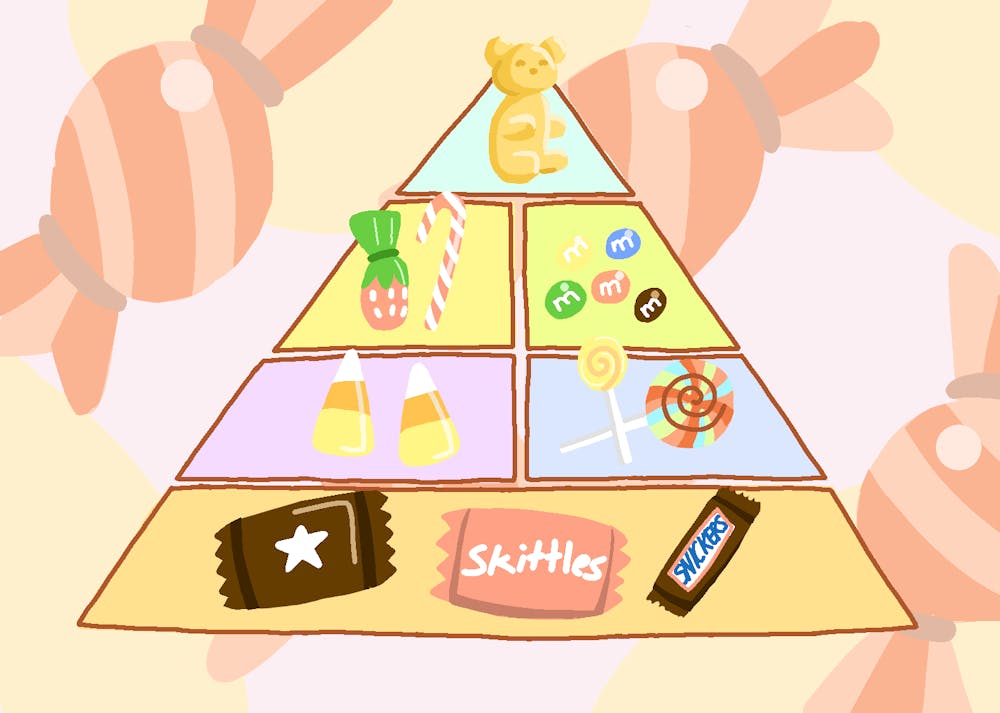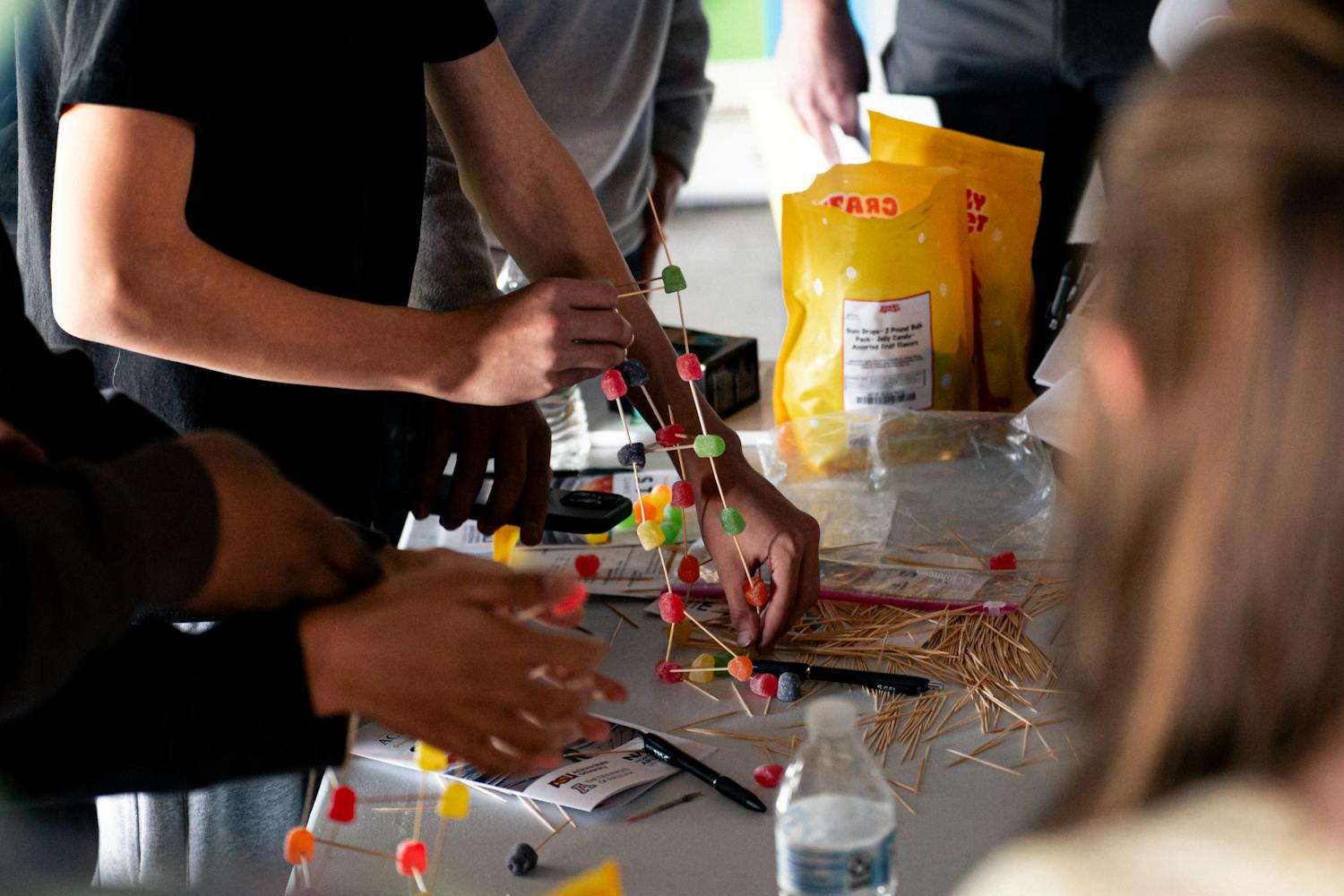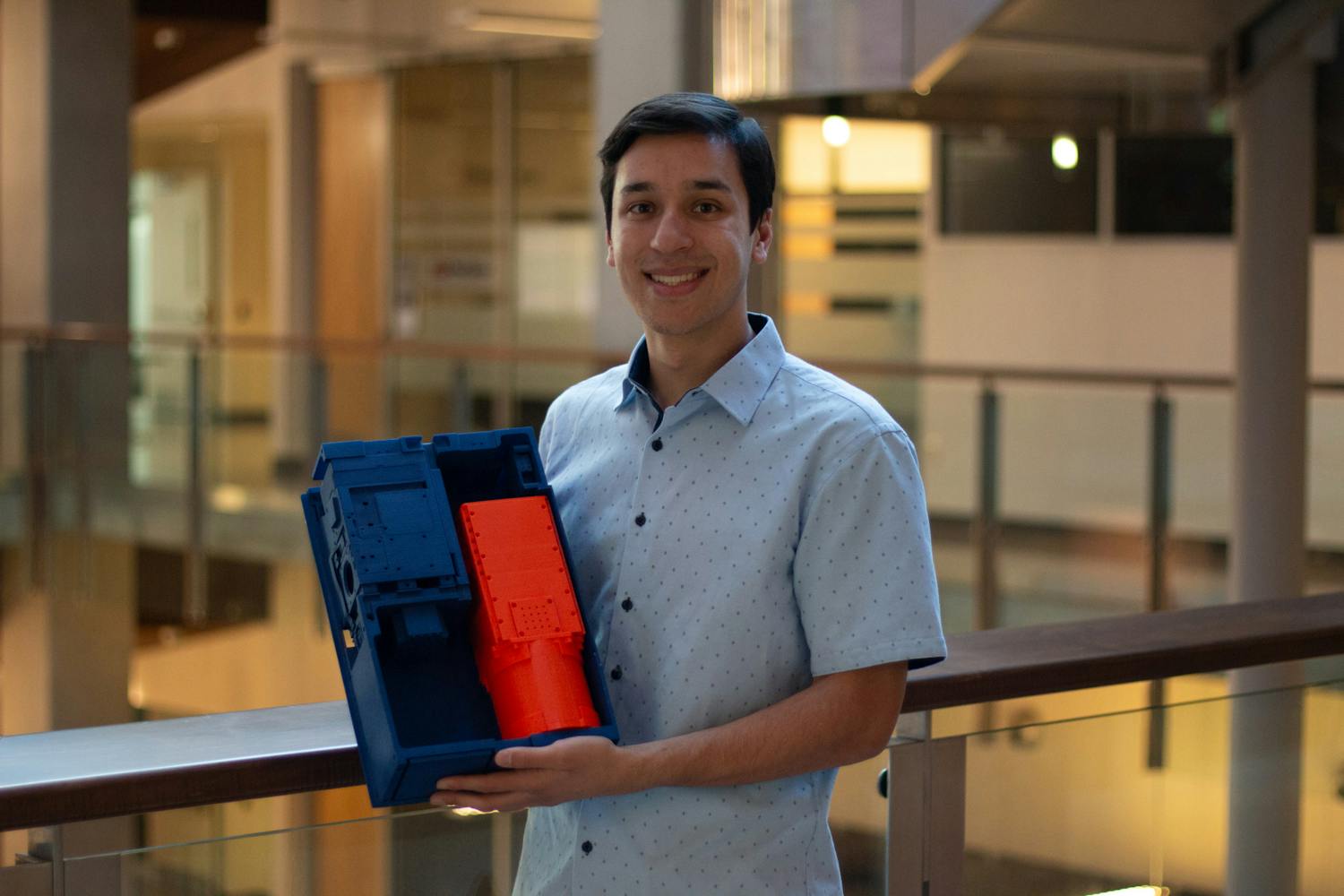The spookiest day of the year draws near, promising students a night of parties, candy and fear. Halloween is a time for enjoying the things that scare us most and, for some of us, confronting that fear is made extra sweet by shoving our faces with our favorite sweets.
But, sadly, candy is not the healthiest thing to crave, and the effects of high amounts of added sugars on our health is downright terrifying. Christina Barth, an ASU lecturer at the College of Health Solutions, recommended some candy alternatives and spoke about what candies are better for people's diets for a healthier Halloween experience.
Some candy has high amounts of added sugars. Too much added sugar consumption can lead to obesity, and a higher risk of diabetes and heart disease, according to Harvard Health Publishing.
People should stay furthest away from any candy made of pure sugar, Barth said.
"Candy corn is one example," Barth said. "Gummy bears, it's just pure sugar. Like Skittles (and) Smarties. It's all just sugar."
Added sugars should be no more than 6 percent of the calories people consume each day, according to the American Heart Association. For most American women, that’s no more than 100 calories per day or about 6 teaspoons of sugar; for men, it’s 150 calories per day or about 9 teaspoons.
However, trying to limit added sugar intake by avoiding eating candy entirely is counterproductive, Barth said.
"It is Halloween, and I don't believe in like, 'don't eat any of that,' type of mentality," Barth said. "If we do that to ourselves, we will probably overindulge and eat too much of it."
There are some candies that are better than others for people’s health, like dark chocolate, a good alternative that has flavonols, which is a natural substance that is associated with reduced risk of vascular disease, present in dark chocolate, Barth said.
“I've also seen cashew butter or almond butter but it's dark chocolate, and that's one of my favorites,” Barth said.
Sugar-free candies remove added sugars while keeping the same sweet taste. However, certain sugar-free candies might not be the best alternative because they can make people want sugar more, Barth said.
"Anything sugar-free, I would just say throw it out because a lot of sugar-free stuff is loaded with either sugar alcohols that can affect our digestive tract or its artificial sweeteners," Barth said. "And we know that artificial sweeteners actually make us crave more sugar, and they also affect our gut microbiome so it can affect our metabolism or digestion."
Regardless of how unhealthy candy can be, Halloween candy sales increased in the U.S. from $2.41 billion in 2020 to $3 billion in 2021, around a 24 percent increase, according to Statista.
For some students, Halloween is a night for indulging in their favorite sweet candy.
Devonte Rushdan, a sophomore majoring in creative writing, said his favorite candy is Kit Kat, and that he eats a lot of candy on Halloween because he is young.
"I'm young, so I just take advantage of my youth," Rushdan said. "I just eat it all. I indulge. I become a glutton on Halloween."
Other students agree with Rushdan on eating lots of candy on Halloween, like Adonis Williams, a freshman studying pharmacology and toxicology.
"It's more of like just a binge thing, just for one night," Williams said.
Although candy is heavily consumed on Halloween, Barth said she would not modify the holiday but advised people not to eat all of their candy in one night.
"It's once a year, you know, so it's kind of fun to like go shopping for candy, give candy out, and if you're a kid going trick-or-treating," Barth said. "Just don't gorge on all your candy in one night. Just one or two portions every night."
Edited by Kaden Ryback, David Rodish and Grace Copperthite.
Editor's Note: A previous version of this story included a grammatical error in the headline. The story was updated on Oct. 27 at 8:50 p.m. to remove the error.
Reach the reporter at Twildma1@asu.edu and follow @TyWildman1 on Twitter.
Like The State Press on Facebook and follow @statepress on Twitter.

Tyson Wildman is a reporter for the State Press SciTech desk. He is excited to begin his journey into journalism and continue to hone his skills as a writer. He is pursuing a bachelor's degree in Mass Communication and Media Studies.




